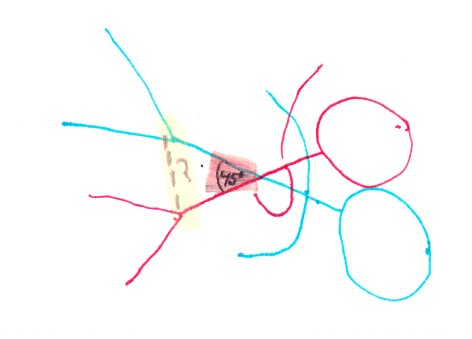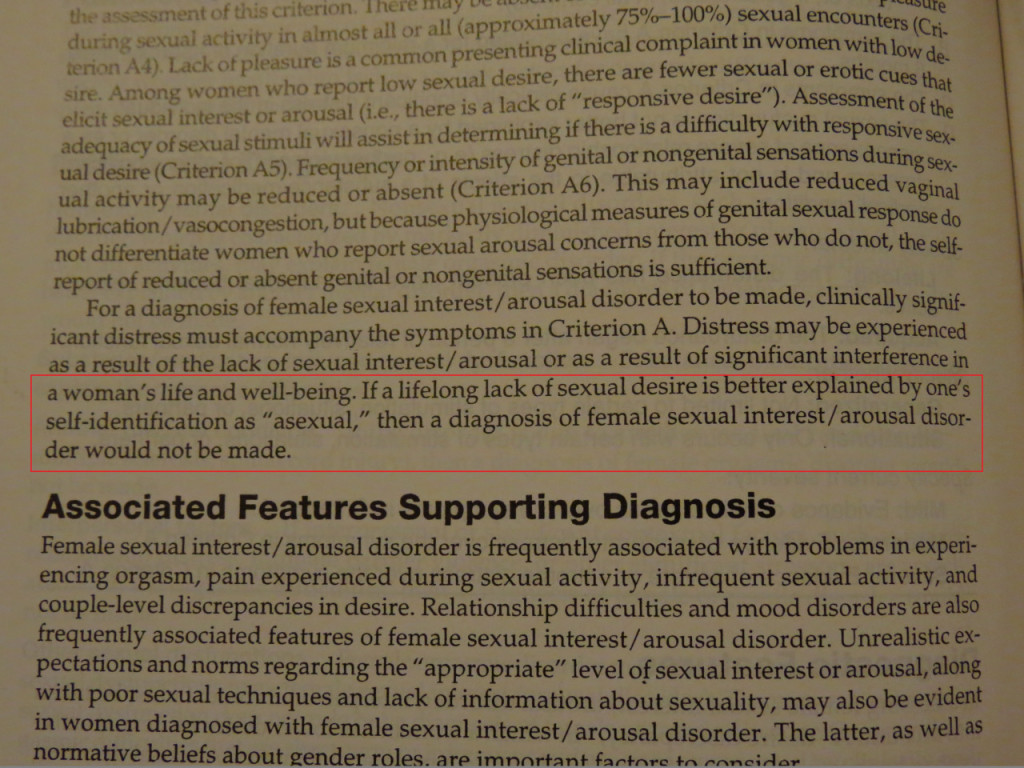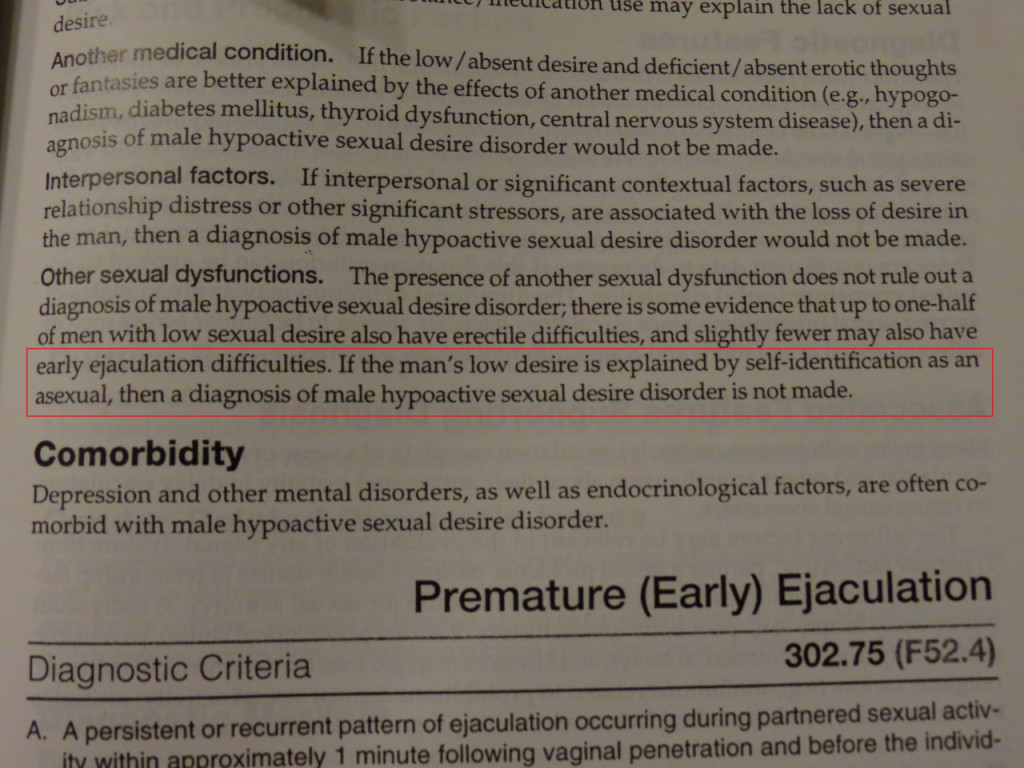[This post was written for the September 2015 Carnival of Aces topic of “Living Asexuality”.]
When I’m not working on an asexuality related website or gazing at my collection of vintage stereoview cards, I have what’s known as a “job”. The specific nature of the job would either bore you to tears or make no sense at all (probably both), so I’ll just say that it’s in tech and the workplace is male-dominated. When I go to work, I don’t stop being asexual. Sometimes that makes me feel like I’m leading a weird double life:
- Nights and weekends: Totally open asexual activist, spreading the word about asexuality to anyone who’ll listen and a bunch of people who won’t.
- Weekdays: Half closeted engineer, quiet in my cubicle.
As I’ve talked about before, sometimes I feel like an invisible visibility activist. It’s not so much that I’m hiding that I’m asexual, I just don’t talk about it because it seems so irrelevant under the circumstances. But then, when I really think about it, pretty much everyone else is broadcasting their sexuality in a number of ways. So why should I keep mine hidden?
Now, I don’t deny what I am. I’ll sometimes wear the ring, and when Asexual Awareness Week rolls around, I’m decked out in the ace colors. But no one knows what any of that means. I’ve gradually built a passive ace pride display in my cubicle, but as far as I know, no one’s actually noticed it. It started with a black ring, then I added a small flag, and finally, I added a WhatIsAsexuality.com/Asexuality Archive promotional magnet.
![IMG_20150914_113249128[1]](http://www.asexualityarchive.com/wp-content/uploads/2015/09/IMG_20150914_1132491281-1024x576.jpg)
Anyway, what I’m really here to talk about is all the ways that being asexual is relevant to my day at the office and interacting with co-workers.
The Waitress At Lunch
“Would you look at that?”
“I bet you left a nice tip!”
“Let’s go to Joey’s for lunch. There are one or two reasons I like that place!”
“You left your credit card there on purpose, just so you could go back and see that waitress again, didn’t you?”
As I mentioned, I work in a male-dominated industry. As a result, I hear things like this regularly. Those are all actual comments I have heard coworkers say to each other, discussing the “hot” waitresses at local dining establishments.
It’s not always a waitress, sometimes it’s a coworker, sometimes it’s a random woman on the street, sometimes it’s an athlete or celebrity, but whoever it is, the remarks are similar, and the effect they have on me is the same. While conversations like these can be roundly condemned as sexist, boorish, and inappropriate, that’s not why I’m bringing them up.
I mention them because they make me acutely aware that I’m asexual. That I’m different. They’re said around me because “I’m one of the guys”, but in this area, I’m not. Not at all. I can’t relate to what they’re talking about, even though they think they’re making a universally recognizable statement. While everyone else actively enjoys going to Joey’s (which is basically an upscale, swanky Hooters), that restaurant makes me distinctly uncomfortable. (And the food is pretentious and overpriced, and the sodas are 3/4ths ice, so it’s not even a good restaurant…)
Whenever a conversation like this gets started, I pull back and shut down, because I can’t be a part of it. And I don’t just mean I go quiet, I mean that I’m fairly certain that I physically pull away from the group. I don’t know what I do exactly, but I know that the change in body language is striking enough to be noticed by other people. One person even began to try and change the subject (Despite starting the conversation himself, usually…) by saying something like “Some people might get offended by this kind of talk”. It was always clear who “some people” was.
But I’m not offended by it. That’s not why I close down. It’s more of a “Please don’t call on me” reaction. I feel like I’m going to be “found out” if I don’t make some kind of crude comment or nod along with the crude comments others at the table make. I’m expected to react approvingly in some way, but I can’t. I have nothing to say on the topic. If I move away and try to make myself as small as possible, maybe I won’t be directly asked to make a comment myself. Maybe I won’t have to explain what’s going on.
Which brings me to…
The coming out.
I’ve never actually come out at work. I’m not entirely sure that I’ve even said the word “asexual” in person to a coworker.
(Now, that’s not to say no one at work knows. Anyone who is friends with me on Facebook will fairly quickly discover that I’m asexual.)
I guess I don’t really know how to come out at work. Other people can work it into a conversation or put a picture on their desk or show their partner around the office one day. I can’t do any of that. (Although, I do have a web browser “missing image” icon in a frame on my desk, but that’s as much of a nerdy joke as it is a reflection of my life.) I can’t think of a way to casually work it into a conversation.
“So, what did you do this weekend?”
“I worked on my website about asexuality and went to an ace meetup.”
The response to that would probably be a blank stare and a muttered “…what?”
It would either kill the conversation outright or I’d have to recite the entire Encyclopedia Asexualica for them to understand. It couldn’t be a quick, casual, matter of fact thing. By then, all the effort would make it feel like I’m recruiting or proselytizing or something, instead of simply stating basic facts about who I am.
Beyond that, there’s the question of whether I’d even want people knowing…
None of Your Business
When you come out to friends or family, it’s often because you want them to know. You want them to understand you, you want them to share in your life. And if they react negatively, although it may be painful and difficult, it’s generally possible to cut them out of your life if necessary.
Work is different. For eight hours a day, you’re stuck in a confined environment with people you didn’t choose to be around. Some of them are your friends. Some of them you don’t really know. Some of them are your enemies.
I live in a very liberal city and work in an industry that’s full of liberals or libertarians. Even the small handful of “I voted for Bush twice and I’d still be voting for Reagan if it were legal and he weren’t dead” Republicans at the office are generally totally down with the whole rainbow. I do not feel like I have to hide who I am in any way, whether it’s for my safety or to keep my job or any of that.
That said, there are people I don’t want to know about me:
The President? The CTO? Senior Director of Marketing? Those people simply do not need to know. Why should they know? They know nothing at all about me other than maybe my name. I don’t need the one piece of personal information they have about me to be this. I’d much rather they know that I like going on vacation and taking pictures. I don’t feel I need to keep it from them or anything, I just don’t see the point in them knowing.
But there is one person I want to keep it from: That Guy™. You know That Guy™. Narcissistic, arrogant prick who’s all talk and no substance, has a Masters Degree in Brownnosing and no real talent to speak of. His career arc at the company is not driven by how good a job he’s doing, but how well he talks up the half-assed job he’s doing to managers who aren’t really paying attention. He’s the sort of person you avoid interacting with as much as possible until he quits or gets fired.
That Guy™ is transparently manipulative. You know that every conversation you have with him is just a way for him to find something he can exploit and use against you.
You are forced into silence out of fear. Telling That Guy™ that you’re asexual is like dousing yourself in honey and rolling around on an ant hill.
He will scoff. He will mock you. He will gaslight you. He will spread rumors about you. He will deny it exists. He will ask invasive questions. He will call you broken. He is the living embodiment of the comments section of an article about asexuality. He will do all of these things just carefully enough that you can’t file a complaint with HR.
And you have to sit next to him for eight hours a day.
The Flirting Coworker
Occasionally, a coworker will develop an interest that goes beyond the professional. They’ll begin probing and testing, trying to figure out if you’re interested, too.
My initial reaction to flirting is to ignore it. This isn’t a conscious strategy to shut it down before it goes too far. I’m actually terrible at detecting it, so I ignore it because I don’t even know it’s happening.
If it persists, I’ll eventually catch on that I’m being treated differently somehow. Maybe they stand a different way. Maybe they go out of their way to stop by my cubicle to talk to me about things that aren’t work-related. There was even one woman who seemed to make it a point to lean over her desk whenever I was around. (And it took me several weeks to even notice that.)
When it gets to this stage, I start to panic. If the flirting is overt enough that I’ve started to see it for what it is, then the situation is serious. I start to try to figure out how to say “Well, you’re nice and all, but I just can’t like you in that way…” Do I say I’m not interested? Do I say I don’t work like that? Do I say that it’s not my area? Do I just say nothing and run away? What do I do?
So far, it’s only gone to the next stage once, where interest is explicitly stated and a request is made to change the relationship status from “Friendly Coworker” to “Potential Romantic Partner, Pending Outcome Of Probationary Period”. (I think everyone else senses I’m a lost cause and gave up well before it got to that point.) I had been practicing how to explain asexuality to this person for a week or so when it happened, but as it turned out, that was not necessary, because they came out to me as ace themselves!
That, of course, turned the rest of my script on its head… I was expecting my asexuality to be the deal breaker, but when that turned out to be a known and desired quality, I had absolutely no idea what to do. In the end, we talked for hours in a hallway and didn’t get much work done that day. I went home and thought about it, and realized that it just wouldn’t work out, because I could not be who they wanted me to be. We had a few awkward days in the office after that, but after those settled, we remained good friends.
The “Family” Conversation
People at work like discussing families.
“Do you have kids?”
No.
“Are you married?”
No.
“Are you seeing anyone?”
No.
By the time the conversation gets to this point, it’s not going to end up anywhere good. They usually stop there, but I know it continues in their head. “Well, why not? I wonder if there’s something wrong. Did he just come off a bad relationship? Is he secretly gay? Maybe I can fix him up with someone. But who…?” I can see that I’m a conundrum to them.
The conversation isn’t always about my status. Sometimes they’ll vent about their wives as if I can relate. As if I care.
I’ve taken to saying things like “I have a room full of video games and no one to tell me ‘no’.” as a way to lightheartedly deflect the conversation from the questions I know they really want to ask. Sometimes I’ll even show pictures of the room full of video games.
I know that I’m looked at as odd for not having a family and for not looking to acquire one, but I know I’d be looked at as even more odd if I tried to explain why.
Before I started writing this, I barely gave any thought to just how much being asexual comes up in my work life. I figured it was rare, that there were only a handful of times where it was an issue. Now I realize that it has an impact, sometimes small and subtle, sometimes big and notable, but it has an impact pretty much every day. And so many of these things are only an issue because I can’t just say “I’m asexual” and have people understand and accept what that means.
Now maybe I need to start thinking more seriously about the impact singlism has on my life at work…




![IMG_20150914_113249128[1]](http://www.asexualityarchive.com/wp-content/uploads/2015/09/IMG_20150914_1132491281-1024x576.jpg)